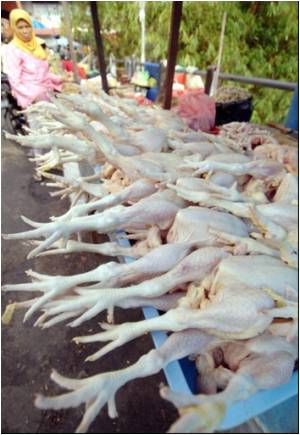Eight genes that could recreate a pathogene similar to that which caused the 1918 deadly Spanish flu pandemic, was found in bird flu viruses circulating in nature, revealed a study Wednesday.

"There are gene pools in nature that have the potential to cause a severe pandemic in the future," said the report’s senior author and lead researcher Yoshihiro Kawaoka of the University of Wisconsin-Madison, whose work was published in the journal Cell Host and Microbe.
The Spanish flu was responsible for 40 million deaths worldwide.
The scientists used reverse genetic methods to recreate a virus that differed from that of the Spanish flu by only 3 percent of the amino acids that make the virus proteins.
In the animals it was tested on, the new virus was less pathogenic than the Spanish flu -- but more so than avian flu -- and, at least in ferrets, didn’t transfer via respiratory droplets, the main way the flu virus spreads.
However, the scientists then discovered seven mutations in three virus genes that allowed it to spread as easily as the Spanish flu in ferrets, an animal commonly used in influenza transmission studies.
Advertisement
According to Kawaoka, the discovery could help scientists develop more effective strategies to combat the emergence of such a disease.
Advertisement
A mutation of a protein on the surface of the virus, for example, allows it to cling to an organism’s cells and could increase the virus’s ability to infect human respiratory tracts.
The researchers also discovered that the virus they created reacted to the current vaccine against seasonal flu -- which is effective against H1N1 flu responsible for a 2009 pandemic -- indicating that the current vaccine could offer protection against a pandemic.
The scientists also noted that the virus was sensitive to oseltamivir, an antiviral medication to prevent and slow the flu.
Source-AFP










